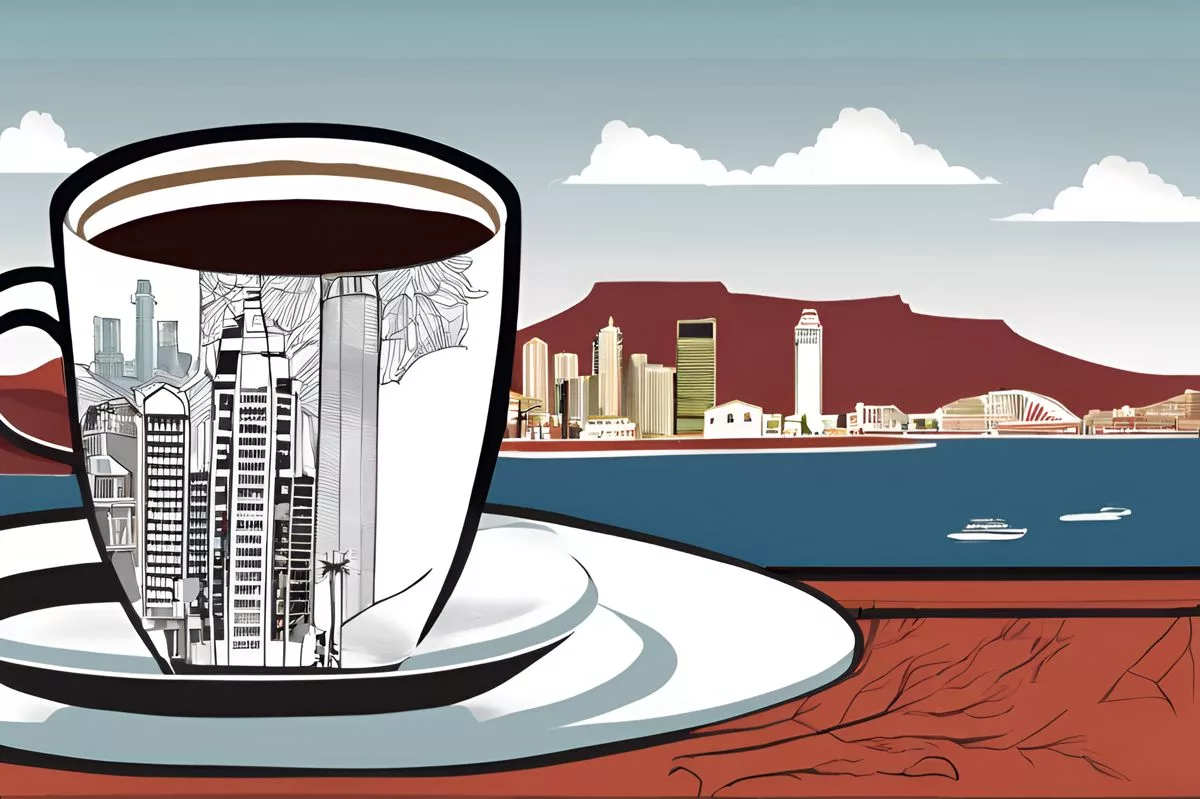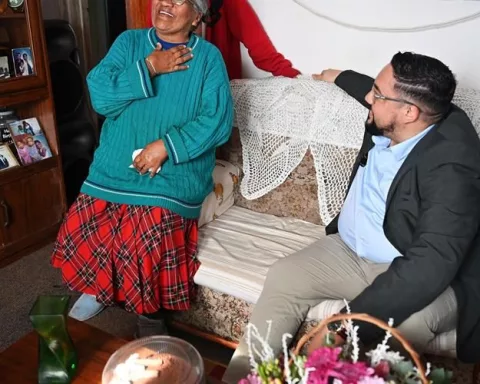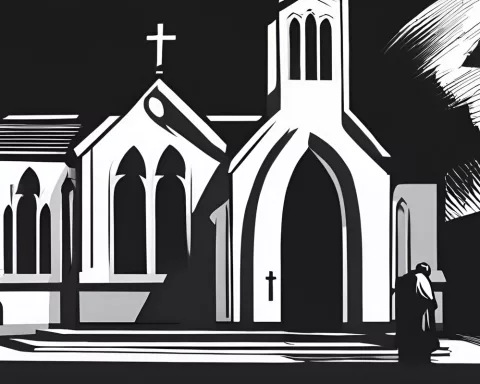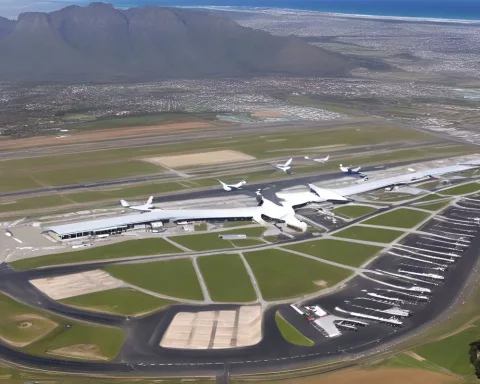Cape Town has a great coffee culture that has earned international recognition. The city’s coffee scene is a celebration of passion, creativity, and resilience, with outstanding roasters and skilled baristas. Cape Town has made a remarkable achievement by securing the ninth position in the prestigious US food aficionado, Food & Wine Magazine’s 2024 rankings of top coffee cities, beating out Melbourne. The city’s coffee heritage reflects its people and history, making it a unique and noteworthy destination for coffee lovers globally.
What is Cape Town’s coffee culture like?
Cape Town has a vibrant and diverse coffee culture that has earned international recognition. The city’s coffee scene is a celebration of passion, creativity, and resilience, with outstanding roasters and skilled baristas forming the backbone of the community. Cape Town’s coffee heritage reflects its people and history, making it a unique and noteworthy destination for coffee lovers globally.
Cape Town’s vibrant café scene has not gone unnoticed in the global arena, earning a respected reputation as a leading coffee metropolis. This charming city, often referred to as the Mother City, has been recognized as a top international coffee destination by the prestigious US food aficionado, Food & Wine Magazine. Cape Town has made a remarkable achievement by securing the ninth position in the magazine’s 2024 rankings of top coffee cities. This list is thoughtfully compiled with the expertise of over 180 esteemed culinary professionals. This notably highlights Cape Town’s culinary excellence and mastery in coffee artistry.
Cape Town’s Coffee Scene: A Celebration of Passion, Creativity, and Resilience
Enver Duminy, the CEO of Cape Town Tourism, proudly shared his joy upon receiving this honor. “The global recognition of Cape Town as one of the top cities for coffee lovers is reflective of our local coffee community’s passion, imaginative flair, and remarkable resilience,” said Duminy.
According to Duminy, the lively and multicultural spirit of Cape Town is beautifully echoed in the city’s coffee sector. The outstanding roasters and skilled baristas form the backbone of this thriving community. The city warmly invites coffee enthusiasts, globally, to revel in the rich flavors and hospitable atmosphere offered by Cape Town.
Duminy further highlighted, “This acknowledgment by Food & Wine celebrates our coffee sector while also praising the unyielding spirit of our city and its residents. We eagerly anticipate welcoming coffee lovers who wish to personally experience the charm of Cape Town’s coffee culture.”
Global Coffee City Rankings: Cape Town Makes Its Mark
The Danish capital, Copenhagen, clinched the highly coveted top position in the 2024 rankings, followed closely by Tokyo and Sydney in the second and third positions, respectively. However, Cape Town has engraved an indestructible footprint at the ninth position, outshining Melbourne, a renowned coffee hub in the Antipodes.
The city’s coffee scene is cherished by coffee enthusiasts and is also a prospering community of exemplary coffee makers. Of particular mention are Truth.Coffee and Deluxe, which have earned significant acknowledgments. These cafés serve as ideal launching pads in a city teeming with extraordinary roasters and baristas.
Other significant contributors to Cape Town’s coffee sector include Origin, Rosetta, and Espresso Lab, each bringing distinct elements. Nøsh, nestled in the Time Out Market Cape Town, is another essential stop. This café, the brainchild of Origin’s co-founder Joel Singer, delivers a unique coffee indulgence by showcasing three of the city’s top artisan roasters—Origin, Truth, and Tribe—all grouped under a single roof.
Cape Town’s Coffee Heritage: A Reflection of its People and History
This acknowledgment serves not just as a compliment to the Cape Town coffee community, but also recognizes the unwavering spirit of its citizens, while simultaneously showcasing the city’s coffee legacy on the global stage. Its lively coffee scene is a genuine depiction of the city, exposing the layers of cultures, historical influences, and the resilient spirit of the city’s inhabitants.
The coffee tradition in Cape Town extends beyond mere industry—it’s a celebration of the city’s history, its people, and their collective resilience. So, whether you prefer calling it a cuppa, a koffie, kofu, or simply ikhofi, Cape Town beckons you to envelop yourself in its aromatic coffee milieu and indulge in a uniquely remarkable coffee experience.
1. What is Cape Town’s coffee culture like?
Cape Town’s coffee culture is vibrant and diverse, with outstanding roasters and skilled baristas forming the backbone of the community. It’s a celebration of passion, creativity, and resilience, making it a unique and noteworthy destination for coffee lovers globally.
2. How has Cape Town been recognized in the global coffee scene?
Cape Town has secured the ninth position in Food & Wine Magazine’s 2024 rankings of top coffee cities, beating out Melbourne. This recognition celebrates the city’s coffee sector, acknowledging the unyielding spirit of its citizens, and showcasing the city’s coffee legacy on the global stage.
3. Which cafés are significant contributors to Cape Town’s coffee sector?
Truth.Coffee and Deluxe are essential mentions, having earned significant acknowledgments. Other significant contributors include Origin, Rosetta, and Espresso Lab, each bringing distinct elements. Nøsh, nestled in the Time Out Market Cape Town, is another essential stop, showcasing three of the city’s top artisan roasters.
4. What does Enver Duminy say about the acknowledgment Cape Town received?
Enver Duminy, the CEO of Cape Town Tourism, proudly shared his joy upon receiving the recognition, emphasizing that this acknowledgment celebrates the coffee sector while also praising the unyielding spirit of the city and its residents. Duminy warmly invites coffee enthusiasts globally to revel in the rich flavors and hospitable atmosphere offered by Cape Town.
5. Which cities were included in the 2024 rankings of top coffee cities?
The Danish capital, Copenhagen, clinched the top position in the 2024 rankings, followed closely by Tokyo and Sydney. Cape Town has engraved an indestructible footprint at the ninth position, outshining Melbourne, a renowned coffee hub in the Antipodes.
6. What does Cape Town’s coffee heritage reflect?
Cape Town’s coffee heritage reflects its people and history, showcasing the layers of cultures, historical influences, and the resilient spirit of the city’s inhabitants. It’s a celebration of the city’s history, its people, and their collective resilience, extending beyond mere industry.








